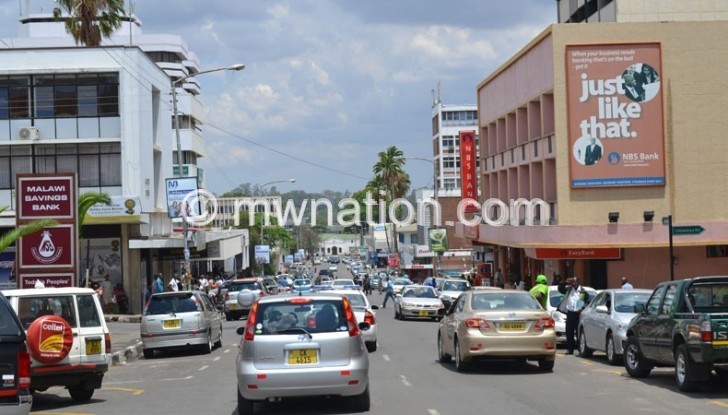IMF programme drought in 2021
The International Monetary Fund (IMF) supported programme came to a screeching halt in 2020. As it stands, it’s been one year and three months without the bank’s supported programme, the extended credit facility (ECF).
The ECF provides financial assistance to countries, like Malawi, which have protracted balance of payments problems.

Trouble started on September 24 2020 when Tonse Alliance government cancelled the Democratic Progressive Party (DPP)-brokered ECF arrangement after spotting some problems.
The new administration which took over power in June 2020, requested a new four-year ECF programme that would be better aligned with Malawi’s long-term development strategy, Malawi 2063.
Government purse-keeper Felix Mlusu said at the time they had noted that some of the critical programme targets agreed to be implemented and met by the country had already been missed.
Following the cancellation of the programme, the new government led by President Lazarus Chakwera, immediately started discussions with the IMF to come up with a new programme.
The discussions have dragged on and implications of ECF delay can be felt by every man on the street: soaring prices as a result of shortage of forex.
The issue is that Capital Hill still had protracted issues to resolve with the fund, chief among them being misreporting on gross reserve assets (GRA) and net international reserves (NIR), for the period 2018 to 2019 by the former governing DPP.
It is suspected that the DPP government cooked up figures and lied on economic situation in the country, especially on the foreign reserves situation.
It’s a crime Malawians are paying the price right now. The DPP’s suspected mischief will likely cost unsuspecting Malawian taxpayers some $58 million (about K50 billion) in a potential refund to the global lender, according to sources at the Reserve Bank of Malawi (RBM).
Pre-conditions for a new programme
For a new programme to come to life, the IMF has set a few conditions. Currently, IMF is not amused with foreign reserve numbers from 2018.
Last month, the Bretton Woods institution made it clear in its latest Staff Report on Malawi which The Nation saw, that conducting a special audit of foreign exchange reserves would be key for Tonse Alliance administration to get a new deal.
Reads the report in part: “The authorities have committed to undertake a special audit of foreign exchange reserves in response to non-complying disbursements [misreporting] under the 2018 ECF arrangement.
“Resolving the misreporting case would be a pre-condition for a new fund arrangement.”
IMF country representative for Malawi Farayi Gwenhamo emphasised in a recent interview with The Nation: “Indeed, resolution of the pending misreporting case will be needed before moving forward with the new ECF.
“In this regard, the authorities have committed to undertake a special forex audit. Progress on this process will be critical.”
However, she quickly clarified other equally important three factors:
· First, authorities’ upfront actions are needed to address debt sustainability, including through engaging creditors
· Second, support from the international community, including through direct budget support will be critical
· Third, Capital Hill’s commitment to an adjustment programme that would help restore macroeconomic stability would be crucial
Gwenhamo said: “These are the other important three elements. We are referring to the audit as ‘special audit of RBM FX [Reserve Bank of Malawi foreign exchange] reserves’ to avoid confusion with any other audits that the authorities might be undertaking.”
But throughout the year, Treasury spokesperson Williams Banda kept on oozing optimism over the resumption of the IMF programme.
He repeatedly maintained in several interviews with The Nation that government is committed to conduct the audit within a shortest period time possible as demanded by the IMF.
Banda also said government is keen to conduct a credible audit with guidance from the IMF and emphasized that it was imperative to define proper termsof references (ToRs), the scope of work to the would-be auditors as well as proper procurement procedures.
He said at the time: “The audit will be timely conducted with adherence to the existing law but with guidance from the IMF.”
Fading IMF signaling effect
As the IMF is setting tough conditions for Malawi for a possible resumption of the programme, on one hand, tongues are wagging over the effectiveness of the IMF programme to other donors for budget support.
Previously, as soon as the IMF okays its supported programme to Malawi, or soon after making a disbursement to the country, other traditional donors were follow by pouring resources into government coffers.
However, over the years, the trend has changed as other traditional donors still keep their taps closed on Malawi even if IMF exudes a green light to other donors.
Economist Gowokani Chijere-Chirwa explained on Monday that the fading traditional signalling effect is directly a product of loss of confidence by major donors in Malawi following Cashgate in September 2013.
Chijere-Chirwa said: “If your public finance management system remains weak for years, that alone is enough to hold back donor confidence and it may take more year before traditional donors would resume budget support full-throttle.”
He adds that Malawi’s dwindling budget support is mainly due to confidence deficit, legacy issues after Cashgate as well as the general trend against budget support.
Winning back donors
Chakwera and his Tonse Alliance administration have been reviewing the Public Finance Management Act to strengthen accounting, budgeting, revenue and expenditure management, but also tighten internal controls and other areas of public finance management to win back donors.
But all these efforts without an IMF programme and the support from the international community, the writing is on the wall that the protracted balance of payments problems gripping the country will remain.
The problem also could court a myriad of challenges, which would directly affect the implementation of economic programmes envisaged in Malawi 2063.





